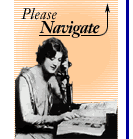|

Frequently Asked Questions
Q. Why are trademarks, including the famous Bell name and Bell Symbol, protected as trademarks?
Trademarks are protected for three major reasons.
- Trademark protection creates an incentive for companies to produce quality products and services. A company is assured that if it consistently makes quality goods or services that consumer will seek out products and services containing their trademark.
- Trademark protection creates a system where consumers can be sure that they are purchasing the same product or service from the same company each time.
- Trademark protection discourages unjust enrichment and unscrupulous behavior by vendors who wait for another company to market a successful product and then sell an inferior imitation using a confusingly similar trademark or brand name.
Q. How long do the RBOCs hold the Bell trade names, trademarks, and service marks?
Trademark rights can last forever. In the United States, trademark registrations are valid for ten years from the date of registration, and can be renewed as long as the mark is in use.
Q. What is trademark infringement?
You may not use a trademark unless the owner has licensed the trademark to you or otherwise expressly given you permission to use the mark. In most cases, if you use a trademark without the owner's permission or license, you are committing trademark infringement.
"Likelihood of Confusion" is the test for trademark infringement both under the federal Lanham Act and at common law. Under the modern cases, the plaintiff in a trademark infringement case is not required to prove that the infringer acted intentionally. The Federal dilution law also protects trademark owners against the unauthorized use of their marks on non-competing goods even when the goods and services are not related.
Q. What are the penalties for trademark infringement?
Under the federal Lanham Act, the remedies for infringement include:
- injunctive relief,
- an accounting for profits,
- damages, including the possibility of treble damages when appropriate,
- attorney's fees, and
- costs.
These remedies are cumulative so that a plaintiff may recover not only the defendant's profits, but also damages. In addition, both damages and profits can be adjusted by the court above those actually proven-damages to the extent three times that demonstrated, and profits to an amount that the court finds appropriate. The Lanham Act also provides that the court may order the destruction of any "labels, signs, prints, packages, wrappers, receptacles, and advertisements" in the defendant's possession which bear the infringing mark.
The Trademark Counterfeiting Act of 1984, 18 U.S.C.A. 2320 defines certain forms of trademark infringement as "trafficking in counterfeit goods", made punishable by up to 5 years imprisonment and a $250,000.00 fine.
The median cost for trademark cases that go all the way to trial was estimated to be $128,000.00 in 1996, which means half the cases cost more!
Q. When do the RBOCs take action against trademark infringers?
RBOCs actively, aggressively, and successfully enforce their intellectual property rights to the Bell name and the Bell Symbol to the fullest extent of the law. RBOCs take action against trademark infringers who have attempted to misappropriate forms of the Bell marks and the Bell Symbol, including misappropriation for use as Domain Names.
The owners of the Bell Marks have successfully enforced their rights against literally thousands of different infringers. Examples of infringing marks and names are Beltronics, Microbell, All Florida Bell, Mobell, Bellcom, MaBell and Liberty Bell.
Q. What about foreign rights?
The Bell name and Bell Symbol are owned outside of the U.S. by Bell IP Holding, L.L.C., a company owned by some of the RBOCs or their affiliates.
 Homepage | Bell Symbol History | RBOCs | Interactive Game | Resources | Contact Us
Homepage | Bell Symbol History | RBOCs | Interactive Game | Resources | Contact Us
|
|
| This Site contains information about the famous Bell mark and Bell Symbol logo. The Regional Bell Operating Companies (RBOCs) - Ameritech Corporation, Verizon Communications Inc., BellSouth Corporation, Cincinnati Bell, Inc., SBC Communications Inc., Southern New England Telephone Company, and Qwest Communications International, Inc. - maintain this Site for your personal information, education, and entertainment. You may not distribute, modify, transmit, reuse, repost, or use the content of the site for public or commercial purposes, including the text, images, audio, and video without the proper RBOC's written permission. |
